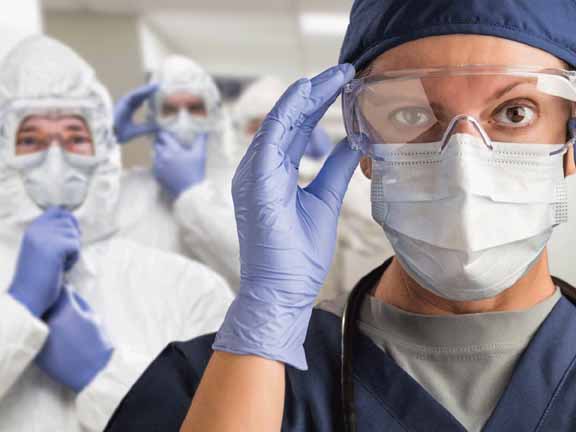A UK research team’s innovative beard covering technique, dubbed as the ‘Singh Thattha’, which enables bearded medics to wear a well-fitting respirator mask while on frontline COVID-19 duties without the need for shaving has proved effective in initial trials.
The team, led by Professor Gurch Randhawa from University of Bedfordshire and Dr Rajinder Pal Singh, sought to work on a solution following numerous calls by Public Health England (PHE) to protect doctors from ethnic minorities, including Sikh, Jewish and Muslim communities, who tend to have beards for religious reasons.
“Because shaving was a mandatory pre-requisite for wearing respirator masks, many members of the faith-observant bearded community, such as Sikh, Jewish and Muslim, have been affected and have had to face the dilemma of redeployment from frontline healthcare jobs involving exposure to COVID-19,” said Randhawa, Professor of Diversity in Public Health at the University of Bedfordshire and Director of the university’s Institute for Health Research.
“Redeployment to other areas incurs a loss of skillset and need for re-training, and junior doctors have had their training impacted,” he said.
Randhawa recalls a similar situation in the US from back in 2005, when a faith-observant bearded Sikh man was denied the position of a corrections officer in California as the job required staff to occasionally wear a respirator mask. ‘NBC News’ reported at the time that Kamala Harris, the then Attorney-General and now Vice President-elect, was unable to support the appointment as the beard would pose a problem as the policy mandated gas-mask fitting. “In both of these scenarios, the common theme was that the beard was considered to be an impediment to the wearing of a respirator mask. The other common principle was the concern for the health and safety of the employee. There was no alternative choice, or maybe, it was unexplored,” recalls Randhawa.
Masks don’t impair lung function during physical activity
Wearing a facemask helps limit the spread of Covid-19 by reducing respiratory droplets and aerosols spewed into the air when people breathe, talk, laugh, sneeze, or cough, a new study suggests.
But the physical barrier created by masks has prompted concerns that they might impair the cardiopulmonary system by making it harder to breathe, by altering the flow of inhaled oxygen and exhaled carbon dioxide, and by increasing dyspnea — a medical term that describes shortness of breath or difficulty breathing, especially during physical activity.
In a new study, published in the Annals of the American Thoracic Society, a team of American and Canadian researchers concluded that while sensations of dyspnea might increase, there is little empirical evidence that wearing a facemask significantly diminishes lung function, even when worn during heavy exercise.
“There might be a perceived greater effort with activity, but the effects of wearing a mask on the work of breathing, on gases like oxygen and CO2 in blood or other physiological parameters are small, often too small to be detected,” said the study’s first author Susan Hopkins, MD, PhD, professor of medicine and radiology at University of California San Diego School of Medicine. “There’s also no evidence to support any differences by sex or age in physiological responses to exercise while wearing a facemask,” added Hopkins, who specializes in exercise physiology and the study of lungs under stress. The single exception, the authors note, maybe persons with a severe cardiopulmonary disease in which any added resistance to breathing or minor changes in blood gases could prompt dyspnea great enough to affect exercise capacity.
